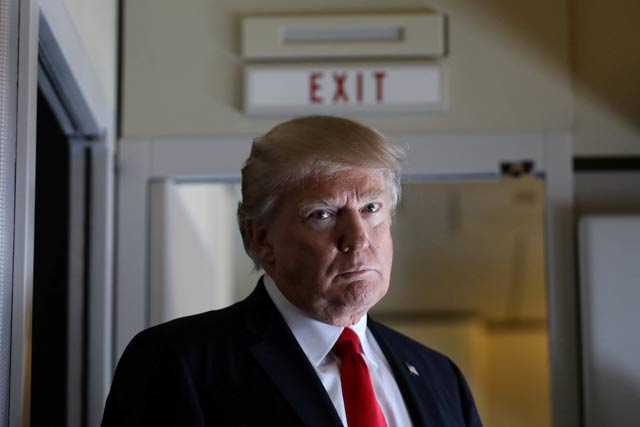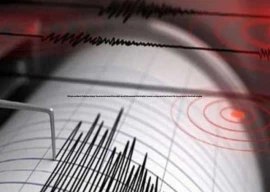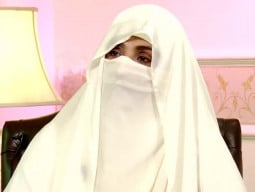
Yiannopoulos’ talk was cancelled by the university administration due to a protest in which some property was damaged. This event went viral on mainstream and social media to the extent that President Donald Trump had to tweet his mind on the issue. Yiannopoulos and his fans too used social media to question the liberal tradition of free speech which has been the hallmark of UC Berkeley since the 1960s. On their part, the protesters - some of whom were radical feminists - argued that they did this all to save and protect the very tradition of liberal values which is at the heart of the American tradition of democracy.
PM’s top aide won Trump team pledges last year
Indeed, the opponents of alt-right are unanimous that Yiannopoulos and Co are confirmed racist, misogynist, xenophobic, anti-Muslims and minorities and they carry an ulterior motive to visit prominent places of learning to incite hate and violence and thus destroy the very foundation of liberal thought and action. Owing to it, one congresswoman termed the students protests as “beautiful riots”. Nevertheless, a protest ought to be peaceful and meaningful for damage to person and property - both public and private - damages the very cause of the protest. The healthy sign, however, is most of the recent pro-Muslims and immigrants protests by a wide section of Americans (included the white) have been peaceful. Indeed, pro-humanity protests give a different feeling in today’s United States which is ideologically divided and socio-economically contested. At least, one gets the impression that, democracy - all power to the people - is not only alive and vibrant here but also fighting back, politically, constitutionally and morally.
From the US, if one looks at the state of democracy in Pakistan, the less said the better. Conceptually, democracy has been made to be understood as a western, colonial project and practice which was imposed on the post-colonial world including Pakistan by the British. In some circles, democracy is believed to be un-Islamic. Some local scholarship has viewed it with scepticism for its failure to bring meaningful change in the lives of the masses. Operationally, most of the political parties in Pakistan lack internal democracy. The tradition of civil society is fragile whereby peaceful protests are a rarity. Moreover, the majority of the population, which sadly is illiterate, has still to learn democracy in terms of knowing the details of their constitutional rights and duties. Little surprise, then, the politicians - mostly in rural Pakistan - has developed a habit of visiting a poor farmer, sick labourer and poverty-stricken cottage dweller during the election time, and not bothering to visit these abysmally-neglected folk after the elections.
PM’s aide, US envoy chalk out road map for meetings
In addition, Pakistan has lost - with time - the notion of genuinely democratic association in terms of labour, student and peasant bodies from the micro to macro level. Besides, the chronic civil-military imbalance has too affected democratisation at all level. The foregoing, thus, makes Pakistan a case where all power is not meant for the people but for the ruling elite which is busy fighting over the re-distribution of resources and the majority of the population lives in poverty, illiteracy and lawlessness. One is shocked to read the news of a three-year girl been raped and dumped in trash. This example is sufficed to summarise the predicaments a common person is going through in our country.
In order for Pakistan to become sustained politically and socio-economically, the people have to reassure themselves that they can make a difference by invoking their agency to be socially aware of their rights and obligations. Moreover, it is the task of social scientists to simplify for a common man that democracy might have been a colonial/western practice but historically the seeds of democracy that “the ruled over has to be consented by the ruler” precedes colonialism; that the ordinary people of Europe protested against established monarchical ad feudal structures for their fundamental rights; that, in principle, democracy is but a logical and moral mechanism for political conflict resolution. Moreover, we need to educate ourselves that religion can be reconciled with democracy as even in social and economic matters, usurpation is not allowed. Take the example of a marriage. Even in today’s Muslim culture, both bride and groom are consented thrice. Pakistan’s pro-religion political parties such as Jamaat-e-Islami and Jamiat Ulema-e-Islam, which take part in elections, are another example of practicing electoral democracy under the 1973 Constitution of Pakistan.
PM Nawaz hopes to meet Trump after inauguration
Last but not the least, for a diverse and plural society such as the US and Pakistan, it is need of the hour on the part of the ruling elite to bargain not to maximise their power but to conceive and implement pro-people policies. The collective dilemma in the US and Pakistan is that the contemporary ruling elite is least likely to tread in the suggested direction. It is then on the people to make the elite realise that all power belongs to the people both in theory and ethic. The socially and morally enlightened people in different parts of the US are already in the street protesting for their rights. Their scholars and scientists are on radio and TV, sharing their research for a larger cause. When will the people of Pakistan question not only themselves for making sloppy electoral choices but also protesting peacefully for their constitutional and natural rights?
The author is a Fulbright fellow at the Institute of International Studies, UC Berkeley. He tweets @ejazbhatty
1724760612-0/Untitled-design-(12)1724760612-0-405x300.webp)
















COMMENTS (1)
Comments are moderated and generally will be posted if they are on-topic and not abusive.
For more information, please see our Comments FAQ